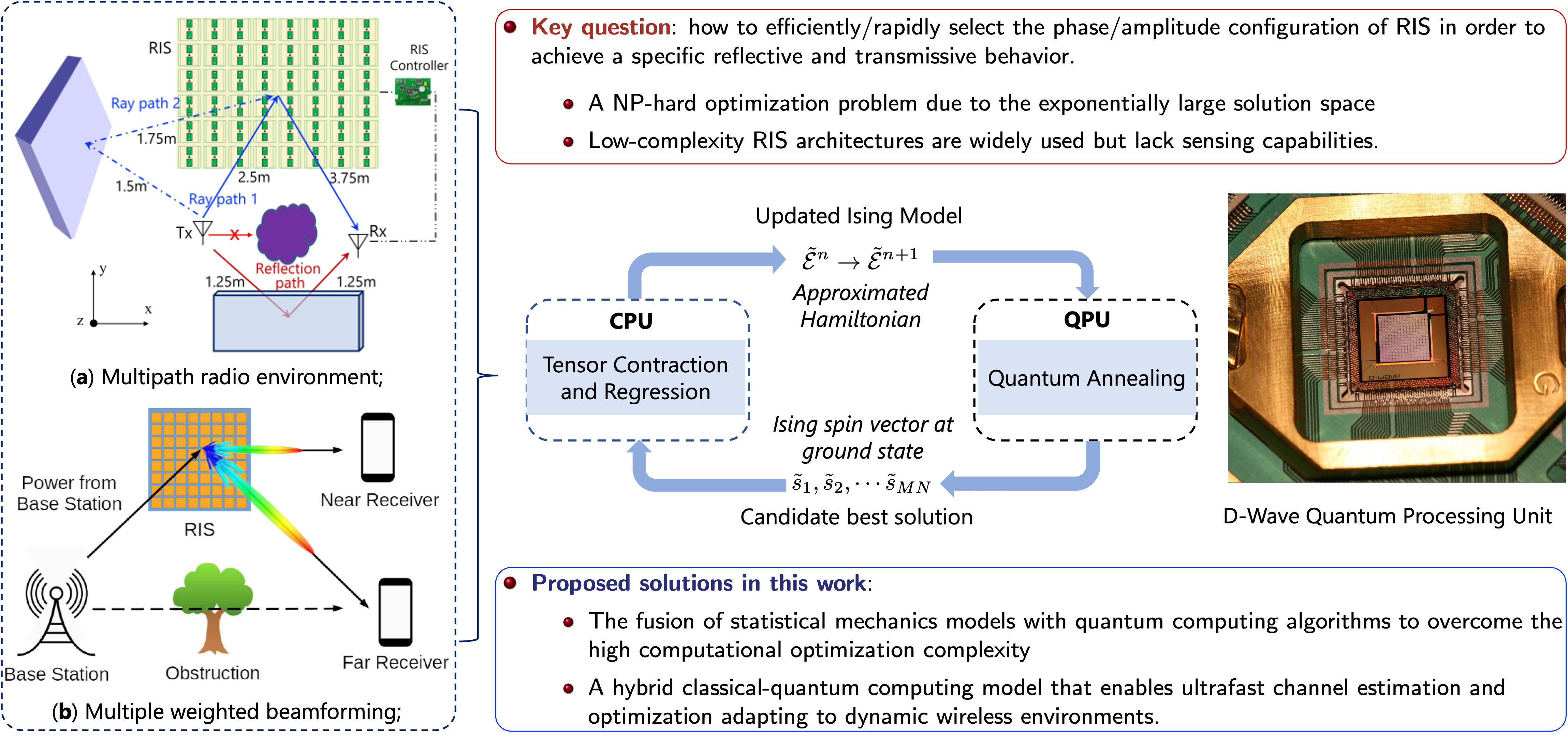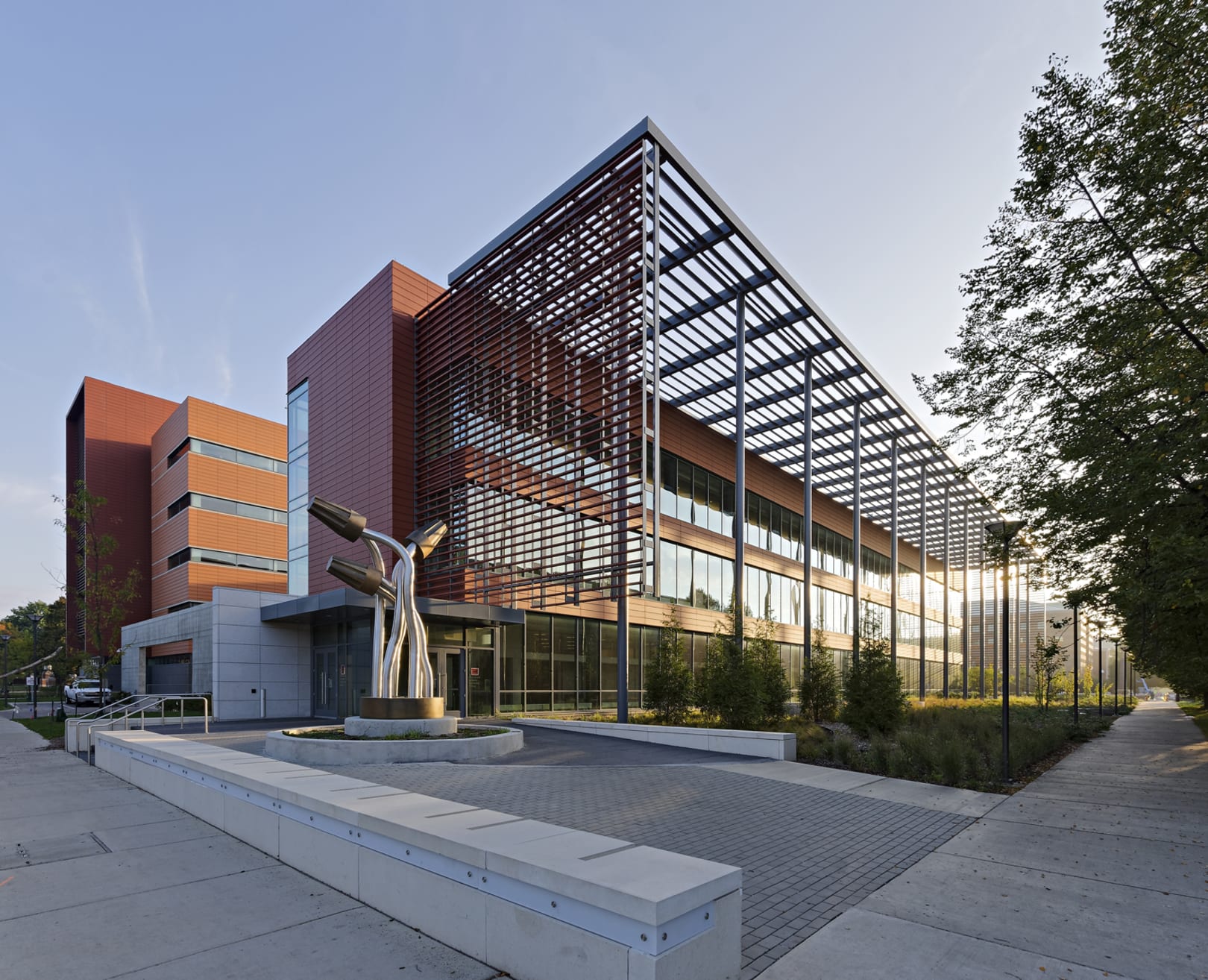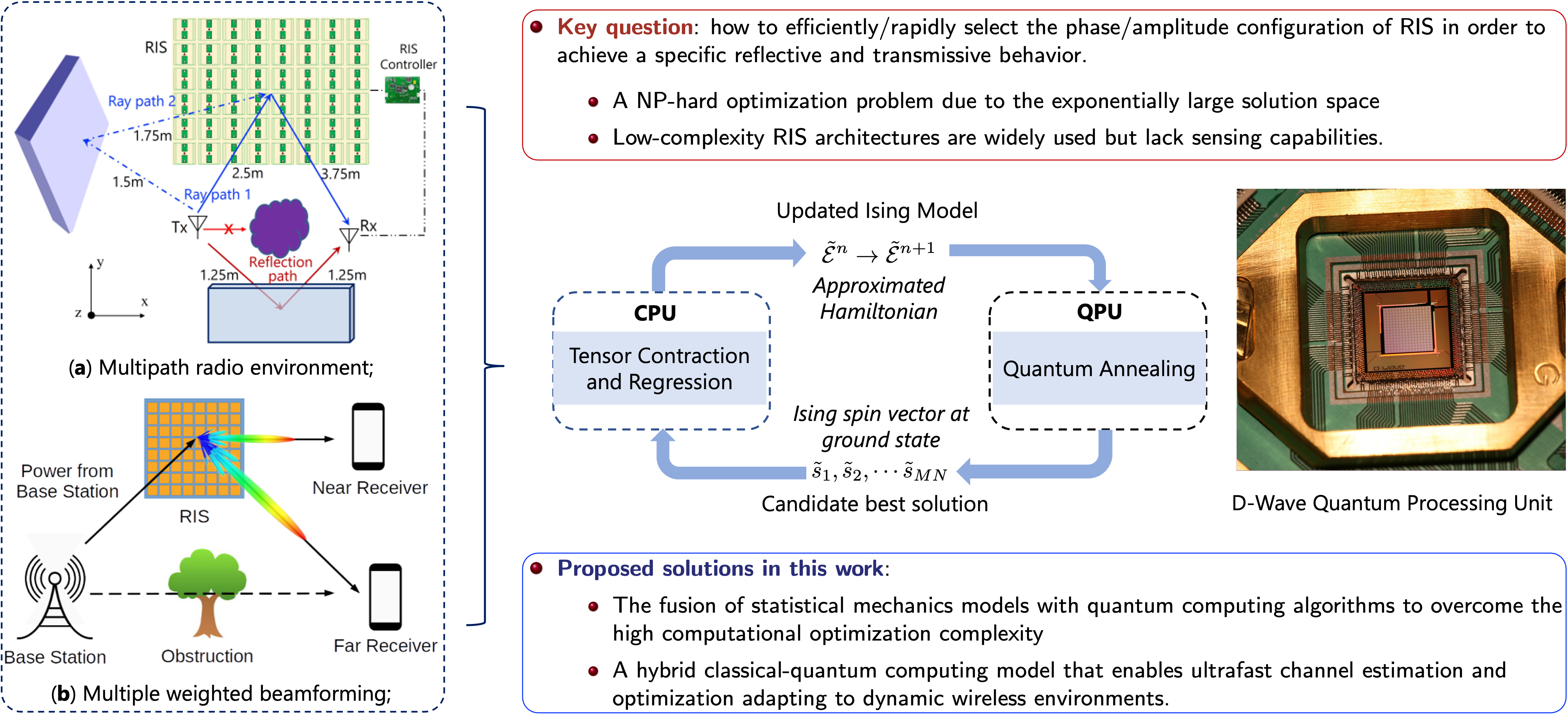Research Statement
The foundation of our research is theoretical, computational, and statistical electromagnetics. The classical electromagnetic (EM) theory guided by Maxwell’s Equations has been around for over 150 years. It has an incredible impact on many modern technologies such as antennas and wireless communication, integrated circuits and computer technologies, remote sensing, lasers and optoelectronics, and more. Nowadays, with the exponential growth in computing power, machine intelligence and data revolution, quantum technologies and materials, there are enormous opportunities to continue advancing fundamental EM theories toward next-generation technology developments and applications.
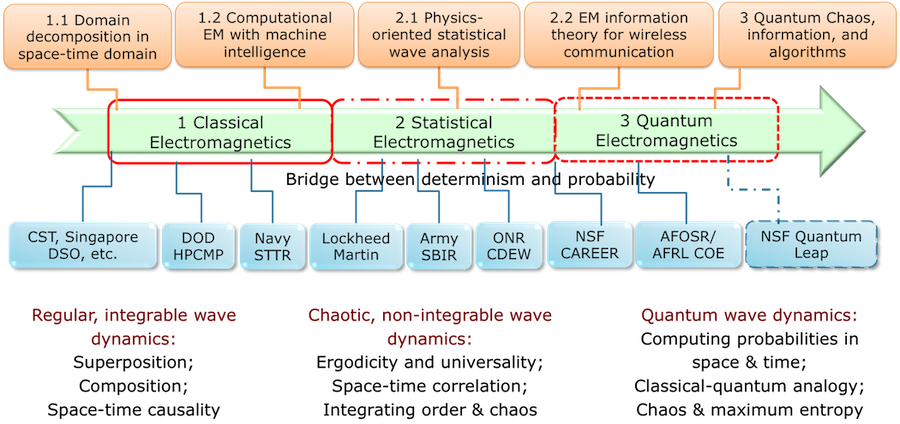
Our rudimentary research is the pursuit of mathematical and computational models that enable the prediction and discovery of classical and quantum electrodynamic phenomena. These models will allow for the design and optimization of novel electromagnetic and wireless systems at unprecedented scales, and contribute through education to the advancement of understanding. Our recent research focus on four interrelated areas: (1) classical electromagnetism with scalable algorithms, (2) statistical electromagnetics integrating order and chaos, (3) quantum electromagnetics: simulating probability in space and time domain, and (4) Smart Radio Environments for NextG wireless systems.
Research Topics
Domain Decomposition Methodology for Solving Maxwell’s Equations at Scale
The goal of this research is to investigate first-principles modeling and analysis tools for these extremely large, multi-scale problems. The emphasis is placed on advancing parallel algorithms that are provably scalable, and facilitating a design-through-analysis paradigm for emerging and future complex systems.
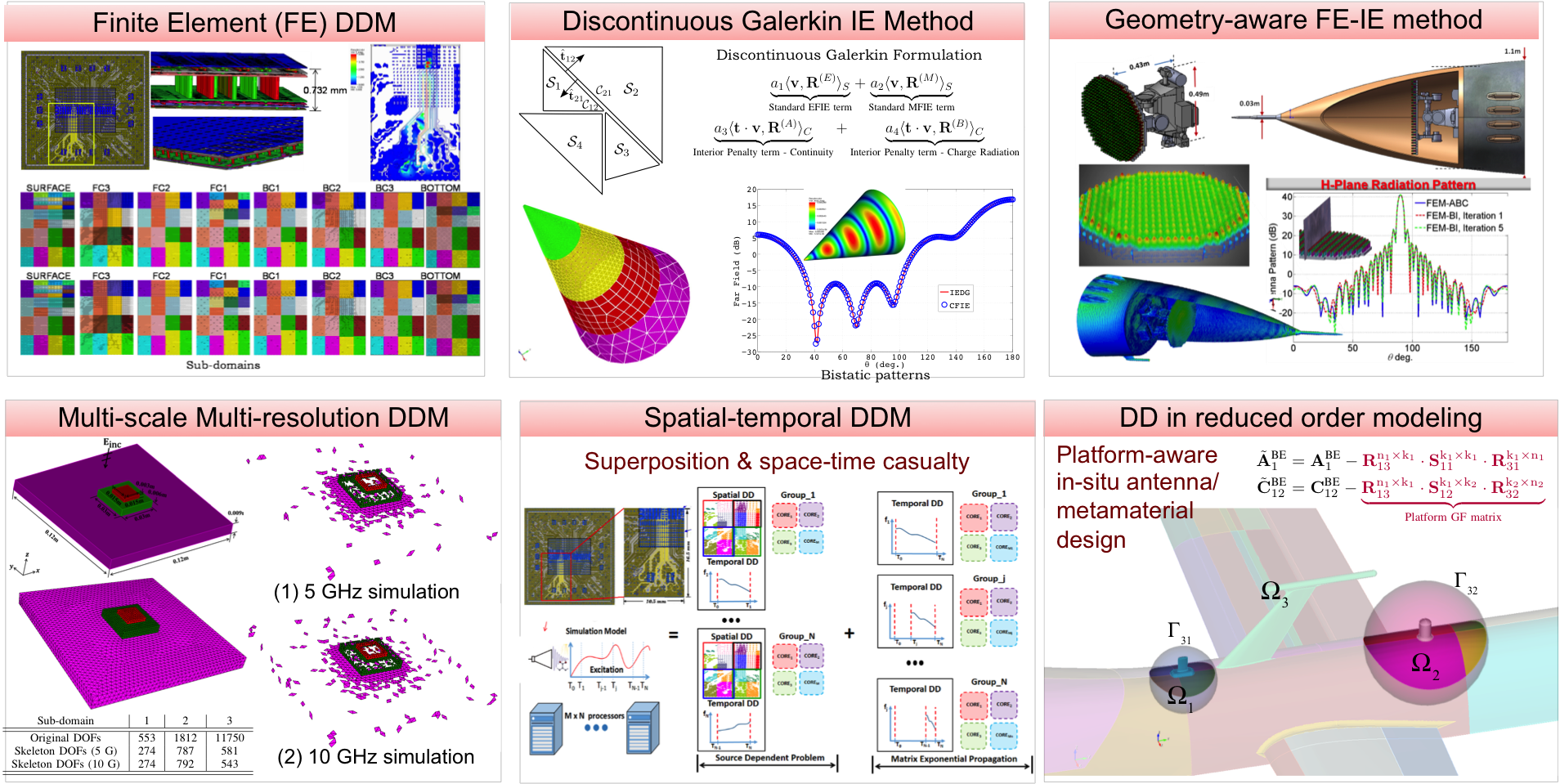
Physics-Oriented Statistical Wave Analysis for Chaotic and Disordered Scattering Environments
The main objective of this work is to investigate new fundamental mathematical models and computational algorithms for statistical wave analysis in complex, confined EM environments. This objective is attained by integrating wave chaos physics, random statistical analysis, and high-performance algorithms on state-of-the-art computational platforms. The research will overcome key challenges in the statistical characterization of three general classes of problems, fully wave chaotic systems, mixed integrable and chaotic systems, and complex fluctuating scattering environments.
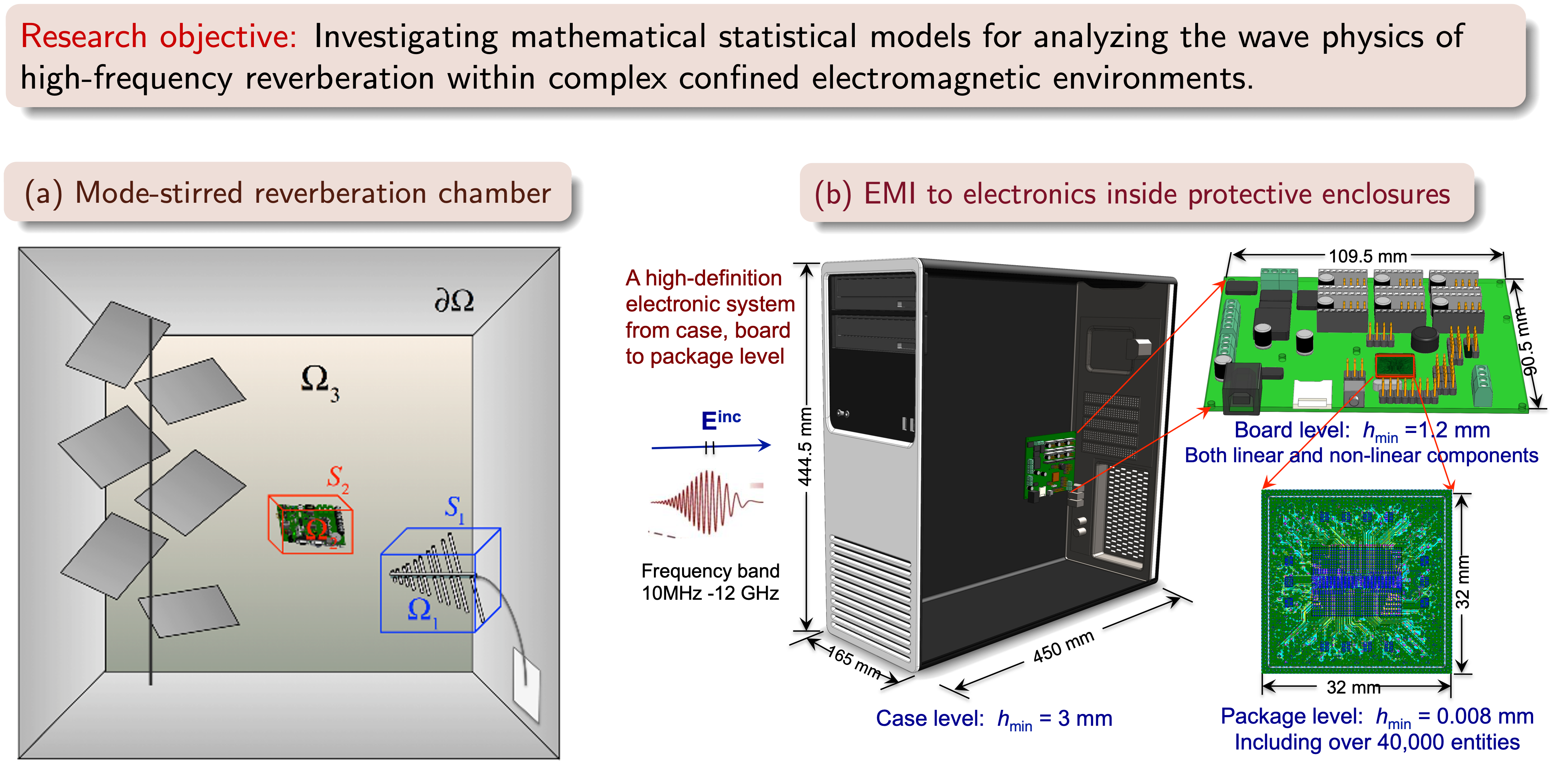
Quantum Computing and Optimization in Smart Radio Environments
Fusing electromagnetic models with quantum computing (QC) algorithms for rapid optimization of reconfigurable intelligent surfaces (RIS)-assisted beyond-5G/6G wireless networks.
